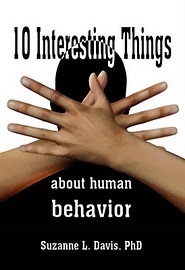More on this book
Community
Kindle Notes & Highlights
The psychological discomfort you feel (which is guilt in this example) is known to psychologists as cognitive dissonance, or a state of tension between what you did and what you believe
Inconsistency in attitudes (and between attitudes and behavior) is fairly common
Knowing that inconsistency (a) is a normal part of human nature, and (b) can lie in the eye of the beholder could have positive effects on your personal and professional relationships.
Rarely is there one and only one cause of a behavior. Most behavior is caused by several factors interacting together simultaneously.
All other things being equal, a significant number of children imitate aggressive behavior they observe live or in video format. But they are significantly less likely to do so when they expect to be punished for it
on average, children are at risk of modeling aggression to the extent they witness it. But there’s more than a good chance that they won’t do so if they expect a negative consequence.
there is no empirical support for the idea that anyone, including psychologists, can accurately read unspoken feelings based on subtle body movements.
It is best not to assume that you know what is going on inside someone’s head – unless they tell you (and there are even problems with that method, since people can mislead with their words).
There is no empirical evidence that anyone can tell you how a person will behave based on interpretation of subtle nonverbal behavior
If you want to know what someone thinks, ask.
As a general rule, high levels of anxiety are detrimental to task performance
The next time someone puts you on the spot, consider asking for a little time to collect your thoughts and calm down if you feel stressed.
All other things being equal, we rate our ability on a given task as above average, but we rate other people’s ability at the same task at or below average
As a general rule, we feel less identifiable and less responsible for our individual actions when in the presence of a large number of people. We temporarily lose our sense of individuality and psychologically become “part of the crowd.”
Some people report experiences of coming out of a dream and for a few seconds feeling “paralyzed.” That’s known as sleep paralysis, and is the brain’s way of protecting us from harming ourselves or others while we dream.


